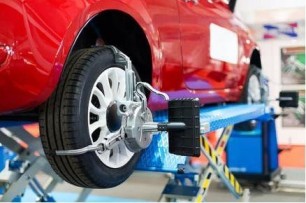General Insurance Blogs, Articles & Updates by - Magma HDI
Have us call you
- RENEW YOUR POLICY
- BUY NEW POLICY

What are the online safety precautions to follow while using public Wi-Fi
Public WiFi is widely accessible and enables everyone to use the Internet freely. You can connect your devices to it at cafés, supermarkets, airports, and hotels. This has definitely introduced a universe of convenience into our lives. But, if you connect to public WiFi, keep in mind that nothing is actually secure.
The primary reason for the vulnerabilities associated with public Wi-Fis is that they do not need authentication to access the network, which means that anybody may join the network, providing an excellent chance for hackers to target unprotected devices. Furthermore, even if the connection is password-protected, any user with malicious intentions who has had access to the connection earlier can still attack your device.
We recommend not to connect to public WiFi, but if you must, adopt these precautions to safeguard your device.
1. Set up a VPN:
Virtual Private Network helps keep your internet sessions private. This is a technique of connecting that masks your IP address, encrypts data transfers, and hides your location. This will improve your security and privacy while using public WiFi. Several VPN services are available in the market. Do your research before getting one that is best for you.
2. Check the HTTPS status of websites you visit:
It is a smart idea to double-check that the websites you're visiting utilise HTTPS (HyperText Transfer Protocol Secure), particularly if they seek sensitive information like your passwords and credit card details. Having HTTPS on websites means that data flowing from the device to the website is protected with the help of encryption. This makes hijacking your device extra harder for someone with malicious intentions.
3. Disable the file sharing option:
You can exchange files with other devices when connected to your home network. However, before connecting to a public network, you must disable this option on your devices. Otherwise, anybody with hacking intentions connected to the same network can view your files or infect your device with viruses and trojans.
Research online to know how to disable this option on your device.
Other notable Do's and Don'ts.
Dos:
• Make sure the automatic WiFi connectivity option is turned off.
• Ensure your Bluetooth is not set on 'Always-on' mode. Monitor the Bluetooth connection whenever turned on.
• Invest in a good Antivirus software that also scans all the networks you've connected to.
• Keep comprehensive public liability insurance in India at your disposal (Better safe than sorry)
Don’ts:
• Don't access sensitive information such as bank details over a public network.
• Don't shop online. Why? Because it may need you to enter your payment details, which is very sensitive data to expose on a public network.
• Don't leave your gadgets unattended in public places.
The best method to avoid being vulnerable while using public WiFi is to utilise your mobile data or other private networks. However, if you must connect to a public network, be sure to minimise the risks and remain secure by following the suggestions above. Data is the biggest wealth an individual can possess in today's technologically equipped world. So, it's our responsibility to safeguard our private information by adhering to all network security guidelines and conducting ethical activities online. In addition, don't neglect the benefits of cyber insurance and invest in it as a part of the best public liability insurance in India.
Click HERE to know more about the best public liability insurance in India.
Disclaimer: The information provided above is for illustrative purposes only. To get more details, please refer to policy wordings and prospectus before purchasing a policy.

You cannot miss these five exciting water sports at beaches
Beaches are no longer just lying down in the sun under a shady umbrella and relaxing by the bay. Beach holidays offer you a new outdoor adventure that is more than a vacation. There are plenty of adrenaline-pumping activities for adventure enthusiasts to get wet and sandy.
From sailing to diving, the countless water sports give you a thrilling experience. Irrespective of your prior experience, you do not want to miss out on these exciting adventures. Let us look at some of the top exciting water sports activities that you shouldn't miss out on your next vacation.
1. Wakeboarding – time to surf beaches and not the internet: One of the most thrilling experiences in water sports is wakeboarding. Similar to snowboarding, wakeboarding involves you standing on the board while a motorboat tows you. Get a chance to feel the force of water that makes you feel the pump of enthusiasm in your body.
2. Water-bike – race through the waves: Another mind-blowing experience that should be on your bucket list is the water-bike. Like motorbikes, you can ride a high-speed waterbike with water splashing all over. It is open for all age groups, but elders also feel the child-like excitement within them. In specific locations, you might even see water-bike races. However, there are specific safety guidelines and precautions for beginners. Once you understand the procedures, you are all set to roll in the water!
3. Scuba diving – life's beautiful underwater: Scuba diving should be on top of the "must-do" list for all the water lovers out there. No prior experience is needed to enjoy life underwater. You can explore the world underwater with all the safety equipment and adore the beauty of marine nature. But before you dive in, please ensure your personal accident insurance plans provides these adventure sports as an inbuilt feature.
4. Parasailing – the sky is the new playground: For people who enjoy seeing the world from above, parasailing is the best adventure. This water sport activity involves you attached to a parachute which is towed by a boat. Parasailing gives you an experience of a bird flying high in the sky, but without the wings. Some places even allow you to accommodate a partner that doubles the fun.
5. Surfing – live life, one wave at a time: Chasing the waves and finding your way is something that everyone should experience at least once. Surfing is not an easy adventure; you need to have the right skills and talent to pull it off. Many surfboard rental places provide a quick and practical guide on how you can surf your way through the waves. It would help if you learned how to maintain a balance, the proper techniques, different riding styles, and more. Once you grasp the basics, it's only you and your surfboard against the waves!
Water sports are the wonderful adventure experience of a lifetime. Although your guide or the expert conducting the water sport activity will ensure your maximum safety, accidents can occur at any time. Take precautions when engaging in water sports with the help of personal accident insurance plans so that you don't miss out on the fun.
Click HERE to know more about the different personal accident insurance plans you can buy before your next beach trip.
Disclaimer: The information provided above is for illustrative purposes only. To get more details, please refer to policy wordings and prospectus before purchasing a policy.

Best tips to successfully survive long train journeys
While many people consider flights to be the most convenient mode of travel, regular and budget-friendly travellers often prefer travelling by train. They offer the benefits of being way more affordable and having better personal space.
While train passengers have the perks of carrying extra luggage and more legroom during their journey, they can quickly get exhausted by getting stuck in the same spot for hours.
Train journeys cover multiple states and borders and can also be overnight. In such cases, travellers are bound to feel confined. Therefore, we have presented some helpful tips to make your long train journeys more pleasant.
1. Wear comfortable clothing:
It's always better to pick comfortable clothes while travelling. Depending on the starting location and the end destination of the train journey, it's better to wear an outfit that will keep you at ease. In cases where a change in weather or temperature, like heavy rain or snowfall, is anticipated, it's best to keep necessary apparel handy. To be on the safe side, always carry a pair of socks, a sweater or jacket, and plenty of handkerchiefs!
2. Pick the right baggage:
One of the best bonuses of taking the train over a flight is having no restrictions on luggage. While this allows you to go above and beyond, picking adaptable baggage is the key to keeping your belongings safe throughout your trip. Too often, it can get taxing to oversee heavy, loaded suitcases, which can get damaged or lost if not taken care of. Make sure to pick flexible and durable baggage that can be carried and handled efficiently.
3. Keep essentials close:
It is important to remember that the safety measures can be compromised as several passengers are on the go. We often come to hear about valuable belongings or luggage getting stolen or damaged in trains. Keeping the backpack containing valuables on your lap or right next to your pillow while you sleep helps ensure maximum safety.
4. Stay hydrated and eat well:
You must drink enough water and eat healthy, energy-boosting foods regularly to ensure your health does not deteriorate during the journey. People tend to fall sick due to the constant movement of the train. So, passengers must manage their diet to stay fit and avoid any severe health conditions.
5. Book the seats wisely:
Booking the right seat for your journey can help you avoid sticky situations. For longer trips, booking sleeper seats lets you catch up on your rest. Also, avoid aisle seats and instead, picking a window seat helps you get away from the hustle-bustle of passengers moving around.
6. Entertainment on the go:
Train journeys can get boring after a few hours of travel. If you're travelling with your family or friends, make your entertainment arrangements. You can carry cards or even play a musical round of "antakshari" to cheer up the moods of all the co-passengers. But, if you're travelling solo, then engross yourself by watching the views outside or simply listening to your favourite songs or podcasts.
While these tips will allow you to make it through your long train journey successfully, it is always better to ensure the security of your health and other aspects are not lost out on during these travels. Investing in specific or general insurance plans goes a long way to protect all the valuable parts of your life, whether it's in your hometown while travelling or at your destination!
Click HERE to know more about the various general insurance plans.
Disclaimer: The information provided above is for illustrative purposes only. To get more details, please refer to policy wordings and prospectus before purchasing a policy.

Why seat belt for the rear seat is equally important
A seat belt is one of the necessary safety items that come with the car. But we often avoid wearing a seatbelt on the rear seat. It is important to understand that as per the Section 138 (3) of the Central Motor Vehicles, seat belts are compulsory for the rear seat passengers as well. However, most rear seat occupants give it a miss because of the lack of awareness and relaxed law enforcement.
The automotive industry experts researched that passengers tend to suffer collisions when a car meets an accident. A seat belt protects the passengers from undesirable forward motion during sudden brakes or crashes. Hence, it prevents critical harm to the life of passengers on the rear seat.
Remember, the rear seatbelts are not decorative accessories; they are installed for a reason. And, in case you are not wearing a seatbelt, your motor insurance company can also object to your claim for damages to your car.
Let's understand the reasons why a seat belt is equally important for the rear seat.
1. Avoid severe injuries:
We might think that sitting on the rear seat is safe, but that's not true. During accidents, the rear seat passenger might get badly injured. Injuries on prime parts of the body like the spine, head, abdominal can be life-threatening. To save yourself from this, make sure that you wear the seat belt correctly. Unfortunately, some cars have installed only lap seat belts, which are not entirely secure. Three-point seat belts are a better option, which have shoulder and lap belts to support the passengers' chest, shoulder, and pelvis.
2. Reason to be penalized:
In 1988, the government enforced an act to consolidate and amend motor vehicles, known as the MV act. According to this safety rule, if passengers are caught with unbuckled seat belts, they are liable to pay a fine for traffic safety violations.
3. A threat to the passengers in front seats:
Studies show that, in many cases, unbuckled rear passengers tend to collide with the front seat and push the front seater into the steering wheel or dashboard. It might damage airbags, and even passengers may strike with or fly out of the windscreen too. So, not wearing seat belts at the rear seats can be life-threatening for those sitting in the front.
Seat belts reduce the secondary danger impacts. It works as resistance for the passengers by holding them in position, such that airbags can work efficiently
Every individual should hold themselves accountable for spreading awareness about the necessity of wearing seat belts during car journeys. Especially when you are travelling with kids, you need to be extra cautious. Check if your children are correctly seated and have their seat belts fastened.
On a conclusive note, never undervalue the use of seat belts. From driving to a grocery store in your neighbourhood to long-distance drives, you must fasten the seat belt at all times. Driving is meant to provide you convenience and comfort, so make a habit of following safe practices such as wearing a seatbelt. Follow the traffic rules, buckle your seat belt, and keep your life, car, money and motor insurance company record safe.
Click HERE to buy/renew your car insurance policy.
Disclaimer: The information provided above is for illustrative purposes only. To get more details, please refer to policy wordings and prospectus before purchasing a policy.

What are the terms not included in your car manufacturer's warranty
When you plan to purchase a car, you spend a lot of time on market research since it's quite a heavy investment involving various factors to consider. Then you look into the car insurance price in India before finalising your decision. Once you figure out all these details, you go ahead and buy the car which suits you the best.
But that's not it. What if there are some faulty parts? Or what if you face some issues with the car, which puts the vehicle at risk and endangers your family's safety? You cannot take that chance. You need to check in with the car manufacturer's warranty. The worst of it is to be unaware of the terms not included in the warranty provided by your car manufacturer.
This article is your guide to understanding your car manufacturer's warranty.
Let's discuss the terms and conditions:
1. Components that require scheduled servicing-oil, fluids, etc. are not covered under warranty by the manufacturer.
2. Accidental damages are covered under car insurance rather than the warranty.
3. Repair and car parts in the lower region are not included in your manufacturer's warranty.
4. Parts that are prone to "wear and tear" like the brake pads, clutch plate, bulb, belts, bearings related to AC, clutch bearing, hub bearing, gasket, etc., do not come under the warranty.
5. Repairing related to fuse, wiper blade, AC gas change, rubber components, cracks in the windshield glass, etc., cannot be claimed under warranty (unless there are manufacturing defects).
6. Paint issues, rusting, corrosion are not included in the warranty unless specifically mentioned.
7. Tyre, battery, music system, parking sensors do not come under the terms of warranty from the manufacturer.
8. Need of repair due to consequential damages like –
• Driving with an engine oil leakage causing a coolant leakage, leading to radiator damages.
• Jump-starting your car with a drained battery
• Engine seizure caused by driving the vehicle in deep water.
• None of these are covered under the manufacturer's warranty.
Car warranties can turn ineffective under the following circumstances:
1. Discrepancies in the recommended servicing schedule.
2. The vehicle is taken to unauthorised workshops or service centres instead of authorised ones.
3. Repairing your car using unauthorised/counterfeit car parts or accessories that can impact the wiring.
4. Damages in Electronic Control Unit (ECU) due to incorrect fitting/usage of unauthorised accessories or spare parts.
5. Attempt to install accessories by modifying the electrical wiring system or using supplements with substandard wiring.
6. Installation of cylinders (CNG) without checking the manufacturer's warranty conditions about the coverage and compensation in such cases.
Now that you're aware of the terms that are not included in your car manufacturer's warranty, you can refer them before making any critical decisions. However, while we're at it, it is necessary to purchase car insurance that caters to your needs for the additional safety of your vehicle and your family.
For that, you need to browse through several car insurances in India and verify their suitability. This small effort can safeguard you from unprecedented circumstances and monetary loss in the long run.
Click HERE to browse through the best deals on car insurance for your new car.
Disclaimer: The information provided above is for illustrative purposes only. To get more details, please refer to policy wordings and prospectus before purchasing a policy.

Vaccinated? Why do you still need to build your immunity
The vaccination drive is in full swing in India, and the government is trying to vaccinate the entire country before the year-end. But, once vaccinated, do you still need to focus on building your immunity? Absolutely yes! Medical authorities, wellbeing experts, and health insurance companies encourage people to continue wearing masks, maintaining physical distance and sanitizing hands. In addition to it, you should also focus on nutrition and a healthy diet to continue building immunity. And here are a few reasons why you still need to build your immunity even after getting both vaccine doses.
1. New virus variant:
In December 2020, the media reported the first variant of covid-19. Since then, many new variants have been identified in regular researches done by scientists. So the question arises, will the COVID-19 vaccine be effective on the new variants? Laboratory studies suggest that current vaccines may help reduce the severity but might not provide complete immunity against these new variants. Meaning you have a chance of contracting any of the virus variants. The best way to prevent this is to keep following the coronavirus safety precautions and focus on developing your immune system.
2. Not 100% effective:
So, will the country be safe and covid free once everyone is vaccinated? Few vaccines have a high rate of success in preventing the illness or reducing the severity of it. It is a fact that vaccines cannot be hundred percent effective against the virus on an entire population. The clinical trials of various vaccines show 90-95% efficacy, indicating that the vaccine reduces your chance of contracting COVID-19. There have been instances of people getting detected with the COVID-19 virus after getting both doses. Therefore, vaccinated people still need to follow safety protocols. The vaccine prevents the severity of disease, reducing the possibility of being hospitalized. Having high immunity further improves your chances to fight against the COVID-19 virus.
3. Other diseases:
Your immunity helps to fight any harmful substances, germs and viruses entering the body. So your immune system allows the body to fight microbes and acts as the first wall of defence in your body, not just when the coronavirus is concerned. Therefore, to not contract any disease, you must take measures to boost your immune system.
4. Protecting the community:
The only way to end the COVID-19 pandemic is to reach the state of herd immunity. Herd immunity is a situation where a massive section of a population gets immunity against a disease. As a result, the whole community is under protection from the disease, not just the few who are immune. Even if you are vaccinated and might be safe from a severe illness due to coronavirus, the people around you aren't, so you are responsible for keeping them safe too.
While it is inevitable that vaccines protect you against the severity of COVID-19, you must still build your immunity, follow COVID-19 protocols, and have good health insurance to be financially and physically prepared for any medical conditions or diseases coming your way.
Are you concerned about the medical bills during a pandemic? Click HERE to know about the health insurance policy.
Disclaimer: The information provided above is for illustrative purposes only. To get more details, please refer to policy wordings and prospectus before purchasing a policy.

What are wheel alignment, balancing and rotation
After putting in months of research, reviews, and careful consideration, you finally zero down on one car. You go on long drives, cut the time of waiting for public transport, and get that car insurance. Let’s now talk about the essential care your car deserves after all the miles it has covered for you.
In this space, we will discuss tyres and the three crucial parts of tyre care - wheel alignment, balancing, and rotation. Taking care of these essential aspects of your car will ensure that you don’t have the unnecessary expense of changing your tyres frequently. But, most importantly, it reduces the risks of driving in unfavourable conditions.
1. Wheel Alignment:
After driving a significant distance, your car needs to go through wheel alignment. It essentially means that your vehicle’s suspension is adjusted so that the tyre makes an optimised contact with the road to avoid frequent wear and tear.
Things that might lead to the misalignment of the tyres are –
• A sudden impact on the vehicle
• Collisions
• Sudden change in steering alignment while driving
If you find it challenging to manoeuvre the steering or notice tears on tyres, it could be due to misaligned wheels. This would be a good reason to go to a service centre for your wheel alignment corrected. Before starting any repair work, buy car insurance online for better features and advantages.
2. Balancing:
Wheel balancing is done to equalise the weight of the tyre and wheel for a smoother rotation at high speeds. However, wheels and tyres vary in their weights resulting in a slight imbalance which leads to the car undergoing extreme vibration and wobbly movements. Tyre balancing along with tyre alignment is done to counter this.
Over a significant period, the imbalance of the wheels is inevitable, so we suggest that you contemplate rebalancing after having driven a considerable distance ranging between 6000km to 8000 km., which a computerised balancer can achieve. First, the wheels are tested for their weights, and the computer inspects any faults. The weight balance is then performed by adding weights on the rim where the computer suggests.
3. Rotation:
The wear and tear of your tyres are never identical. The front tyres are susceptible to more damage considering they undergo more pressure from steering, braking, and most of the weight is towards the car’s front. So for a uniform beating, interchange the front, rear, and spare wheels. To ensure that your tires have a longer run time, you must consider wheel rotation.
So there you have the three essential services that you need to provide to your car after having enjoyed some thousand miles. These services must be performed periodically to ensure the longevity of your vehicle. While looking for car services near you, do consider to buy car insurance online. Many owners tend to neglect the benefits of having comprehensive car insurance for their valuable possession, but this coverage can add value to your car.
Click HERE to get the best deals on car insurance online.
Disclaimer: The information provided above is for illustrative purposes only. To get more details, please refer to policy wordings and prospectus before purchasing a policy.

Why you must consider getting a trainer before joining the gym
Aiming for a more intense physical fitness level is achievable, but consider hiring a personal trainer beforehand. Irrespective of your fitness level, training with an expert can most effectively help you achieve your health and fitness objectives. Whether you're new to fitness training or the gym is your second home, workout under a professional trainer will set the fitness tone for you.
Also, it is necessary to exercise caution at the gym to avoid injuries and mishaps that can impact your regular life. Since you cannot predict injuries while training, secure your life under the umbrella of a personal accidental insurance online coverage. This could assist you in covering the costs of medical treatment if you were injured while working out at a gym.
The following are the five primary reasons for working with a personal trainer.
1. You have no idea where to begin:
Exercise can be challenging if you are new to it. When faced with the responsibility of creating a comprehensive fitness schedule, it's easy to get carried away. You then have to consider multiple factors, such as which activities to include in your workout regime. However, trainers are well-versed in the various aspects of a complete program, including cardio, strength exercises, and flexibility training, among others.
2. Variety in regular exercise is encouraged:
While training, you can't continually gravitate to almost the same machines at the gym or repeat the same exercise routines at home. A personal trainer can expose you to activities you may have never done before or that you'd never have undertaken on your own. Also, reducing your chances of becoming bored or striking a border in your fitness journey. A trainer gives an unbiased perspective. They assist you in modifying your schedule to make it more engaging, proactive, or even just more fun to complete.
3. Understand how to work out on your own:
You can learn exercises correctly by working with a trainer, even if your ultimate objective is to design your regimens and training on your own. For those who are new to weight lifting and require additional practice, trainers can provide necessary guidance. The proper form for each exercise is essential for getting the most out of your training and avoiding injuries. In addition, while shifting from a personal trainer to working on your own, consider purchasing personal accident insurance online for additional safety.
4. Tips for a healthy diet:
Personal trainers can provide essential dietary guidance, which many customers may find highly beneficial as they navigate their health and fitness endeavours. Whether you want to lose weight, increase muscle, or do both, your diet is critical to reaching your goals. You can improve your gym performance by learning how much protein to eat, including more fruits and vegetables and whole grains, and even how much water to drink each day. As a result, consult with your trainer for recommendations as you plan your diet.
5. Diagnosed with an ailment, injury, or condition of some kind:
Trainers work with a diverse range of individuals. Some trainers specialise in working with clients having specific needs. For example, to avoid any further harm, a trainer may assist you in designing a workout program that concentrates on the areas of your body you need to work on without putting yourself at risk for new or recurrent injuries.
A private trainer can help you develop the necessary abilities and encouragement to achieve your fitness objectives. In the long run, working with professionals may prove to be well worth your time and money. In addition to it, you should also consider personal accidental insurance online so that you can concentrate on your workout without being worried about injuries and healthcare expenses.
Click HERE to browse the merits of purchasing personal accident insurance online.
Disclaimer: The information provided above is for illustrative purposes only. To get more details, please refer to policy wordings and prospectus before purchasing a policy.

Six habits of successful weight watchers
If you want to reduce weight, you may be considering a complete lifestyle change. Remove chocolate from your diet, avoid alcohol, quit eating sweets, say goodbye to junk food, begin running 10 kilometres every day and so on. Wait! The list is endless and, while it sounds like a foolproof strategy to lose weight, it isn't easy to follow.
So, what is that unique, the successful weight watchers do to reduce weight? They work on an alternative way to cultivate healthy habits. Here are six habits that can help you reach your healthiest weight.
1. Hydration:
The brain frequently misinterprets thirst, which is triggered by minor dehydration, for hunger. Even slight dehydration might cause your metabolism to slow down and function inefficiently. Don't reach out for a snack, instead find a tap and drink some water next time you feel that hunger calls frequently.
2. Don't skip meals:
Especially breakfast, you'll rarely see successful weight watchers skip breakfast. Skipping meals is a bad idea in general since it means you'll be hungry later. And, when you're hungry like that, you're more likely to overeat.
3. Mindful eating:
The idea of mindless eating is familiar to most of us. Whenever we're sitting in front of the television or browsing through our phones, this is what we do. However, when you focus on what you're eating without interruptions, you create a healthier connection with food, lose extra weight, and are more likely to keep it off.
4. Intake more fibre:
Fibre doesn't have any unique fat-burning qualities. It just makes you feel full without adding too many calories to your daily diet. For example, if you eat a baked potato instead of a bag of potato chips, you'll consume fewer calories and be less hungry an hour later.
5. Caloric awareness:
Simple math, to lose weight, you must consume fewer calories than you spend. Figure out your caloric intake and try to meet the demand with nutrient-rich, minimally processed food. Wholesome foods and healthy fatty foods are great choices. Snacking now and then won't hurt; try to be aware of the foods you consume, and as long as you're in your maintenance calorie level, you're good.
6. Exercise regularly:
Hitting the gym, swimming laps in a pool, dancing, and running are the possibilities. Find a workout that you like and adhere to it. Adding various forms of exercise will keep you engaged. Aim for 10,000 steps every day. Take stairs instead of the lift whenever you can. Just keep your heart rate up every day one way or the other.
Be patient with your new habits. Weight management is a journey that all weight watchers should enjoy. What worked for others may not work for you; follow these six habits and add your mix to it. Find the right combination, and then be consistent.
Losing weight leads to a healthy lifestyle as it increases your productivity and efficiency at work and keeps you motivated throughout the day. In addition, it reduces your medical bills, healthcare costs and premium for your health insurance plan. Many insurance companies encourage healthy individuals with affordable health insurance plans.
Click HERE to know about affordable health insurance plans.
Disclaimer: The information provided above is for illustrative purposes only. To get more details, please refer to policy wordings and prospectus before purchasing a policy.

Things to know while recovering from a dog bite
Although most dogs are friendly and offer infinite affection to the humans around them, sometimes even the most gentle and cute puppies can snap under specific conditions. Hence, intentionally or unintentionally, many people are hurt by dog bites. In either case, there are immediate measures you must take to treat the wound and limit the danger of infection.
If you are bitten by a dog, the frontal teeth will grasp and squeeze your tissue, and the smaller teeth might shred it. The outcome is a piercing, gaping wound. When an injury becomes infected, the consequences are typically severe. Therefore, medical assistance on the same day is necessary. Remember that your health insurance will ease the whole medical process and keep you from unnecessary expenses in financial aid requirements.
Continue reading to discover what to do and how to avoid infection if a dog has bitten you.
1. Assist with first aid:
. Clean the area with lukewarm water and soap if your skin isn't damaged. As a precaution, apply an antimicrobial cream or antibacterial ointment to the affected region. If you have damaged skin, gently pat the wound with warm water and soap to encourage a tiny bit of bleeding. This will assist in the removal of bacteria. Then, bandage the wound properly and visit the doctor if you suspect an infection or exposure to rabies.
2. Inquire about the dog's vaccination record:
If the dog's owner is around, inquire about the dog's immunization history. If the dog is alone, see if anybody who observed the incident knows about the owner.
3. Inspect the bite frequently:
If the bite is infected, it might turn red, bloated, and heated to the touch. You may experience discomfort or develop a fever, in which case, it is advisable to visit a doctor.
4. When should you seek medical attention:
Visit the hospital if you haven't got your latest tetanus shot, if you feel weak, dizzy, faint, or if you develop a fever.
Besides that, other reasons you should see a doctor are if the wound:
• Bleeds uncontrollably
• Causes a great deal of discomfort
• Appears inflamed, puffy, or red
• Causes movement loss, such as difficulty in flexing fingers.
5. Do you really require rabies vaccination:
If the dog that bit you is acting strangely or foaming at the mouth, you should take a rabies vaccine. Getting a rabies post-exposure vaccination makes sense if you or your doctor have concerns that you may have caught rabies from the bite. Because of widespread immunization and preventive initiatives, rabies is uncommon, and dogs seldom transmit it.
Your most excellent defence against dog bites and related repercussions is to vaccinate your dog for rabies and keep away from unfamiliar dogs. No matter how cute a dog appears, never approach one you don't know. Dog bites are frightening, and if left untreated, they can lead to significant consequences.
Therefore, you should check any symptoms of infection straight away. Take the medication as prescribed. Consult your doctor if you take longer than expected to recover from your injury. Keeping your health insurance policy up-to-date is crucial to receiving uninterrupted benefits during emergencies.
To get health insurance, click HERE .
Disclaimer: The information provided above is for illustrative purposes only. To get more details, please refer to policy wordings and prospectus before purchasing a policy.

The best tips to live a sustainable lifestyle
For years, humankind has been a cruel predator that has not cared for or preserved the environment. As a result, we live in a world that is deteriorating with each passing second. Today, we face the negative repercussions of drastic climate change, rising global temperature and sea levels, rapidly melting glaciers, wildfires, droughts, etc. While we are already experiencing the ramifications of years of ecological neglect, it is never too late to go green.
People are finally starting to understand the importance of preserving the environment for future generations. Although we cannot reverse climate change overnight, we can contribute to slowing it down. Here are the best few tips to start living a more sustainable lifestyle.
1. Use reusable cups, glasses, and straws:
Many takeaway restaurants and cafes hand out cups and glasses that we can use only once. These are usually made of plastic or paper and are detrimental to the planet. Using reusable cups, glasses, and straws made of a durable material like bamboo, glass, silver, etc., helps reduce the amount of plastic waste, which is highly toxic for the environment.
2. Take a bucket bath:
Wastage of water is one of the biggest mistakes we make. We tend to undervalue freshwater availability, overexploit it, and forget that “water is life”. For example, leaving the tap or shower running for long durations wastes a significant amount of clean water. We can simply avoid this by taking a bucket bath that controls the amount of water used per person.
3. Take more walks, cycle more:
The constant overuse of motor vehicles causes high polluting gases and harmful substance emissions. Pollution levels are rising at an alarming pace in the metros and cities. This can significantly be reduced if each person decides to walk more often. Walking is not only a healthier alternative but also an eco-friendly initiative. If longer distances need to be covered, cycling or electric vehicles are a greener alternative to motor vehicles. Several online general insurance schemes spread awareness about the benefits of travelling by foot or on a cycle to promote public health and fitness.
4. Reduce, Reuse and Recycle before waste disposal:
Reducing unnecessary purchases is key to maintaining a minimal and sustainable lifestyle. Reusing materials such as clothing, containers, etc., to their absolute limit is another way to reduce waste generated. While disposing of garbage, segregating it into categories like wet, dry, biodegradable, and non-biodegradable goes a long way. This makes recycling of waste much more efficient.
5. Use eco-friendly products:
Several products like cleaning agents constitute harmful chemicals that can be toxic to the environment. When exposed to the environment, they contaminate it and take far too long to be cleaned out. Many of these products pose a threat to wildlife as well. By boycotting them and switching to eco-friendly cleaning products, we can help to prevent the direct release of these hazardous chemicals into the environment.
Our planet is severely damaging and needs to be preserved at all costs. Not only our lives depend on it, but also the future of coming generations need a safe environment. While you can easily invest in general online insurance today to protect your future, the planet cannot. Let’s be the insurance of our environment and provide the best efforts to ensure its safety by having a more sustainable lifestyle.
Click HERE to surf through the different plans of online general insurance.
Disclaimer: The information provided above is for illustrative purposes only. To get more details, please refer to policy wordings and prospectus before purchasing a policy.

The complete guide to growing an indoor vegetable garden
With increased awareness about the health advantages of organic vegetables, indoor vegetable gardening is becoming rapidly popular. Planting leafy greens indoors has numerous benefits, such as stress reduction, improved air quality in your house, and less carbon dioxide emissions. Imagine getting these benefits by producing your veggies rather than purchasing them from a grocery shop.
Even if indoor gardening is convenient, there are a few pointers to consider if you want to make the most of your space. Here is the guide to help you start your in-house vegetable garden.
1. Choosing a specific location:
Determining where you want to establish a garden in your home is the first step! Your challenge would be creating a healthy and nourishing environment for the plants to grow well, even in enclosed surroundings. Plants need adequate sunlight for nourishment, and the fluctuating room temperature may affect their growth. Therefore, any compact area, such as a windowsill, may work well for the good health of the plants.
2. Take your time and select the ideal plant for your garden:
The selection of plants for indoor gardens is usually considered one of the most critical aspects of the project. If possible, consider plants that are adaptive to an indoor environment and can thrive well in that habitat. Lentils, cherry tomatoes, and herbs are good examples of plants that may be grown indoors with minimal effort. However, not all plants can survive in the limited space available for gardening purposes. In most cases, root vegetables are not suitable for indoor gardens since they require a deeper container for proper growth. However, if you have a terrace or other outdoor space to accommodate large containers, you can grow them in an interior setting.
3. Know how frequently to water your plants:
Water is a crucial ingredient to escalate the growth of vegetables indoors. The quantity and frequency of water widely depend on the plants you have. Every species has a different requirement, and you need to acquaint yourself with the knowledge of all the species you are planning to cultivate.
4. Fertilize regularly but not overly:
The roots of most plants digest the soil, allowing them to take up nutrients and other minerals. Because the plant is growing in an enclosed space, the number of nutrients available can decline over a long period. Fertilization should be done once or twice a week or month, depending on the circumstances. Conduct some initial studies to pick the most effective indoor plant maintenance tips for your indoor garden environment.
5. Understand how much sunlight your plants require:
One of the frequent indoor gardening issues is ensuring that plants have enough natural light for optimal growth. For many veggies and plants, at least 6 hours of direct sunlight each day is required. Fruits that bloom, such as strawberries and tomatoes, need at least 8 hours of direct sunlight each day but benefit from 10 hours per day. Unlike most other plants, leafy greens can survive in situations with just partial exposure to direct sunshine.
Plants need to be cared for just like children. You'll need to show a lot of dedication to succeed at indoor vegetable growing. However, with the proper instruction and the right amount of space and time, you'll be eating delicious vegetables straight from your own backyard in no time!
Maintaining your dream home is similar to cultivating indoor vegetable gardening, requiring a lot of time and effort. Protect your hard-earned property with a home insurance policy. Just as you take care of your indoor plants, home insurance will shield your home from unfortunate mishaps and financial losses.
Click HERE to get more details about our home insurance policy.
Disclaimer: The information provided above is for illustrative purposes only. To get more details, please refer to policy wordings and prospectus before purchasing a policy.

Five safety tips while riding two-wheeler in bad weather
Bad weather comes with some real testing of your riding skills. It’s not unusual to have bad weather and the unsafe conditions it creates. It can pose a massive impact on riding two-wheelers on the roads. Harsh weather conditions like rain, strong wind, fog and snow affect everyone on the road, allowing space for accidents. So, if you are out and having difficulty in riding your bike due to bad weather, consider not attempting to take that risk to speed up and reach the destination quickly. Instead of being a daredevil, learn to be patient and wise during these situations. Also, we suggest you invest in 2 wheeler insurance as a safety plan if your two-wheeler faces damages due to the severity of the weather.
Here are some guidelines for two-wheeler safety in adverse weather.
1. Prepare ahead of time:
It is never easy to steer through bad weather; it usually leads to unnecessary stress reaching a safe place. It may limit the concentration that may land you in unfortunate incidents. Ride carefully and think of taking a safer route. Find a safe shelter and use navigation systems to track your current location and tracing your way back comfortably.
2. In foggy conditions, use the headlight:
Use the headlights during foggy weather as your two-wheeler’s headlights will alert the vehicles approaching you and avoid chances of accidents. Also, it is better to continue riding in a single lane. This will make the traffic realize your two-wheeler’s presence and save you from collisions.
3. Check to see if your vehicle is in good working order:
Get the tires and brakes checked more frequently. Confirm and check if your headlights are clean. Dirty headlights can disturb visibility by throwing less light, which can be crucial during bad weather. Remember to get regular servicing done for your two wheelers, mainly when the weather is foggy or rainy.
4. Keep a safer distance and check your speed:
Remember, brakes tend to work slow in bad weather conditions. If you do not maintain a safer distance with another vehicle, you can face severe consequences. According to experts, to stay on the safer side, always maintain a double gap between your vehicle and the one ahead of you.
5. Do not forget your helmet and pull over whenever required:
As the law has made wearing a helmet mandatory, ensure that you and the person sitting behind you are wearing helmets. This can save you from injuries if you stumble. Whenever you find a safe spot, stop over and take a break. While riding, you need to be alert and watch out for open potholes or cracks in the roads.
Following the safety tips mentioned above will ensure your maximum safety when the weather starts acting up. Bad weather conditions come with a higher probability of accidents. Besides the safety tips, it is also necessary to protect yourself with insurance. Always ensure that you get covered with valid 2 wheeler insurance and prepared for the safest ride under these bad weather conditions.
To buy the best 2 wheeler insurance, click HERE .
Disclaimer: The information provided above is for illustrative purposes only. To get more details, please refer to policy wordings and prospectus before purchasing a policy.

Physiotherapy: A sustainable method to recovery after an accident
Most of us can recall experiencing the agony of aching joints and strained muscles at some point in our lives. So, it’s obvious to wonder how you can speed up the recovery process after such events. It’s one thing to clench your teeth and get through a minor setback, but when the same ache occurs often, you have to improve some things on your own.
Physiotherapy can assist speed up the healing process. In addition, physiotherapists are trained to help clients through rehabilitation processes that result in rapid, accurate healing. Another thing that can be a helping hand after an accident is personal accident insurance plans. In such misfortunate times, personal accident insurance plans provide you and your family with financial security.
Let’s understand why you should opt for physiotherapy after an accident.
1. Long-lasting relief:
Regular physiotherapy treatments assist in alleviating pain by focusing on retrieving the strength of muscles, which eventually leads to more extended relief from aches.
2. Minimise reliance on medications:
Although painkillers provide you immediate relief from discomfort, their long-term effects are proven harmful for human kidneys and the liver. As a result, physiotherapy proves to be a safer and more effective alternative to medication for treating long-term pain difficulties.
3. Avoids surgery:
Physiotherapy plays a vital role in minimizing the chances of undergoing surgery if not required. It helps eliminate pain at the core, repair damaged tissues, and promote effortless and smooth movement over time by utilizing several treatments comprising a mixture of exercises and therapies. In some circumstances, physiotherapy helps patients get back to normal faster after surgery.
4. Tackle age-related concerns:
The older population is more prone to developing bone, joint, or muscle-related disorders like osteoporosis and arthritis, which cause excruciating pain. Regular physiotherapy sessions can be magical for the elderly in addressing everyday aches and pains.
5. Better movement and stability:
It might take time for those recuperating from surgery or an injury to get life back on track. The movement might be complex, and accomplishing simple tasks can seem unattainable. Physiotherapy can be beneficial in these situations. It not only helps the body rebuild lost muscular strength and coordination, but it also helps the body gain balance to move around securely.
6. Avoid further injuries:
Physiotherapy concentrates on a patient’s vulnerable body parts and develops a strategy to help improve those areas. This ensures the complete reclaim of strength in those body parts. Therefore, these parts are less likely to suffer from an injury in the future due to muscle immunity.
When you’ve had a physical injury, obtaining therapy is one of the intelligent decisions you can make. The treatment aids in the rapid restoration of flexibility, mobility, alignment, and endurance. Furthermore, physical therapy can help you prevent the persistent discomfort that many injuries cause. Physiotherapy can give your entire body the attention it needs to heal quickly and precisely. Treatments of these accidental damages demand expenses that can take a toll on your finances. Insure you and your family with personal accident insurance plans to reap financial benefits at the time of unforeseen incidents.
To get personal accident insurance plans, click HERE .
Disclaimer: The information provided above is for illustrative purposes only. To get more details, please refer to policy wordings and prospectus before purchasing a policy.

Eight safety measures that need to be followed at a construction site
In the developing world, with growth comes the need for constant construction of infrastructure. But construction projects at the cost of human life can be risky for any developer. Just like any other office, a safe environment is required at a construction site too. Safety rules serve a purpose at construction sites. Still, every year, many fatal accidents occur at construction sites.
So, how do we secure a safe construction site for everyone? In this article, we have put together eight safety measures that need to be followed at a construction site.
1. Check your tools and equipment:
Examine all the tools and equipment that you often use. Check them all before starting to work and ensure that they don’t need repair work. Even a slight fault can cost massive damage when operating them.
2. Training is the key:
The company’s responsibility is to hire trained and qualified workforce for working at a construction site. Even though most people learn things during the job, safety is a skill that is better to know before starting the job. Regular instructions and safety drills should be given to the workers and everyone to be adequately trained on security procedures.
3. Proper supervision can be a guiding hand:
Every construction site should appoint a person capable of enforcing discipline and proper safety standards with no exceptions. The supervisor should be responsible for checking on every person present on-site and also check if the safety protocols are correctly followed or not.
4. Proper signs to stay alert:
There are multiple possible hazards at a construction site for the workers and others. Therefore, it is necessary to caution people of potential dangers like the falling of heavy objects or the presence of gas or chemicals. Signs and posters are the most effective and affordable way of reducing accidents by making people alert when they are close to the site.
5. Communicate regularly on safety:
Communication is not confined just among the selected group of employees. The employer is also responsible for talking to the workers about safety or taking all precautions to avoid accidents. Often minor occurrences of miscommunications lead to severe accidents. So, it is crucial to ensure proper and clear communication on safety rules at the construction site by the authorities.
6. Be careful about the scaffolding:
When erecting scaffolding, ensure that every worker has enough training on creating scaffolding and working on it. It should be constructed firmly on the ground with the support of solid footing to avoid it from collapsing.
7. Beware of surroundings when using heavy equipment:
Caught in between and run-over accidents are the most common occurrences at a construction site. Therefore, stay away from blind spots of any heavy equipment. Always maintain a safe distance while working on heavy equipment.
8. PPE:
Provide personal protective equipment to every worker. Ask them to wear a reflected vest, safety goggles, head and fall protection gear, and safety gloves at all times. The safety of workers should be taken care of at all levels because they are the ones who face the maximum risk of getting injured.
To avoid any casualties, provide a set of safety rules for everyone to follow. But still, unfortunate accidents can happen, and there is a need for extra prosecution. So, another step that construction companies oblige is to buy 'public liability insurance India.' This insurance offers cover for third-party liabilities that adds to an extra layer of protection.
Click HERE to get the best deals on public liability insurance India.
Disclaimer: The information provided above is for illustrative purposes only. To get more details, please refer to policy wordings and prospectus before purchasing a policy.

Reasons why heart attacks are becoming common in younger generations
Heart attacks, cardiac arrest, and other cardiovascular disorders have remained a serious public health problem worldwide. More alarmingly, it has lately been discovered that a growing number of cardiovascular diseases are being identified and reported among the younger population. Previously, mainly those over the age of 40 were thought to be at the greatest danger of heart attack. However, these days, the condition is most commonly seen in people between their '20s and '30s.
The age group is frequently involved in harmful lifestyles and behaviours such as irregular eating habits, disturbed sleep, smoking, and excessive alcohol drinking. Therefore, appearing healthy on the outside does not imply that you are in excellent shape on the inside.
Lifestyle factors are a significant contributor to the increase in heart attacks in younger people as they are constantly under pressure to perform and compete. As well as those who overeat and drink too much are inviting health risks to their hearts. It is time for people to become aware of health insurance to avoid severe cardiac diseases. People of any age can purchase and renew health insurance online and start taking their and the health of their loved ones seriously.
We explain here the factors that increase the likelihood of a heart attack in young adults.
1. Obesity:
Cardiovascular disease is much more likely to strike someone who is obese. A healthy weight is crucial for one's well-being and good health, whereas being overweight places a high strain on your heart. Even if you usually are healthy, the excessive accumulation of fat in the body raises your chances of a heart attack.
Weight gain or obesity, on the other hand, is associated with a higher risk of other health problems too. Increased blood pressure or high blood cholesterol might influence your heart health.
2. Alcohol and drug abuse:
Consuming alcohol and drug substances can provide temporary respite while causing long-term heart problems. The youth generally use substances to de-stress, reduce pain, escape from worry or sadness, or simply for pleasure. As a result, they are attracted to the consumption of these substances. The problem kicks in when they overuse substances, and the pleasure turns into an addiction. This poses a load on the liver, stomach, kidneys, and heart to filter out these substances.
3. Depression and anxiety:
Stress is a constant companion in the lifestyles of today's youth. Stress levels are at an all-time high today, as they have never been before. Unfortunately, the youth nowadays do not have appropriate coping mechanisms for dealing with stress. Stressful office environments, excessive job pressure, financial uncertainty in a fluctuating job market, and social media influence all of these contribute to unhealthy lifestyles and extreme blood pressure. Undiagnosed hypertension causes damage to the arteries and reduces the amount of blood that reaches the heart muscle. In addition, oxygen starvation causes damage to the heart muscles, causing them to deteriorate and eventually lead to a heart attack.
4. Diabetes:
Hectic work schedules, fast-paced lifestyle, constant stress, and inconsistent eating and sleeping habits contribute to the spike in blood sugar level resulting in diabetes. Diabetes is considered as the "Silent Killer" as it increases your risk of developing blood pressure and blood cholesterol, both of which are risk factors for heart disease.
Changing your lifestyle and taking the correct medicines when needed is vital to maintaining your health. Avoid consuming excessive alcohol, smoking cigarettes, or consuming drugs. Instead, focus on strengthening your core by regularly exercising and planning an efficient diet.
As an adult, it's challenging to maintain your health since you must undertake serious responsibilities and expectations. Boost your general well-being and renew health insurance online to lower your vulnerability to heart problems and safeguard your health financially.
Click HERE to know about the best deals on health insurance plans.
Disclaimer: The information provided above is for illustrative purposes only. To get more details, please refer to policy wordings and prospectus before purchasing a policy.

Do helmets really save lives? Here's proof
Section 129 of the Motor Vehicles Act of 1988 makes it mandatory for two-wheeler riders to wear safety helmets. According to the law, the helmet must also have a thickness of 20-25 mm and be made of high-quality foam. It should also be ISI-certified and adhere to the Bureau of Indian Standards.
Now the question you ask: Do helmets save lives?
According to recent research published by the United Nations, at least four out of every ten motorcyclists killed in road accidents might be spared if they wore proper helmets. The UN Motorcycle Helmet Study further points out that two-wheelers are one of the most dangerous modes of transportation, stating, "Motorcyclists are 28 times more likely to die in a traffic collision than drivers of passenger vehicles. Wearing a proper helmet increases motorcyclists' chances of survival by 42 percent and prevents almost 70 percent of injuries."
In India itself, effective helmet use can save at least 15,000 motorcyclists in India each year. The traffic discipline on Indian roads is annoying to most good commuters. Even though you follow all the rules, lack of lane discipline, over speeding and jumping the red signal light by the defaulters around you cause a higher risk of accidents. So while you are cautious on the road, getting an extra layer of bike insurance protection is always recommended. If you haven't bought one, purchase bike insurance online for your vehicle to remain extra safe on uncertain roads.
Why don't riders wear helmets?
Despite these facts, people neglect to wear a helmet citing the many excuses such as; heaviness of it, narrowing view, neck pain, or hair loss because of it. But they should understand that the advantages surpass the disadvantages in these cases. Some individuals avoid wearing helmets in their community by lanes, but they fail to realize that accidents do not always happen at high speeds. People have died from severe head injuries after falling off a two-wheeler at low speed. Furthermore, several incidents have occurred when bikers met with accidents due to potholes on the roads. Also remember, not everyone travels at 20-25 kph.
Quick tips before you buy a helmet?
By now, you've probably recognized that wearing a helmet is an essential part of your safety routine. So here are recommendations to help you to get the appropriate helmet:
• When purchasing a helmet, look for one that has the ISI mark on it.
• The ISI marking on a famous helmet brand assures that it can withstand the forces generated by accident and protect your head from damage.
• Only buy helmets from well-known manufacturers.
• The helmet's fit is essential, so get a helmet that fits your head tightly
• Ensure the protective padding within the helmet, which absorbs the power of an impact.
With a good helmet, a good bike insurance plan is what you also need to have. You can go for bike insurance online and select the best one with an attractive premium and features. You always look fabulous on the bike, but safety comes first. So, be cool, wear your helmet!
To view the best bike insurance online, click HERE .
Disclaimer: The information provided above is for illustrative purposes only. To get more details, please refer to policy wordings and prospectus before purchasing a policy.

Here are a few reasons why two-wheelers are a preferred alternative to public transport
Commuting during the peak office hours in India requires around 149% more time than usual, which means you can expect to be stuck in traffic for hours. But the modern-day lifestyle does not allow us to be slow-paced, and thus, people require quick solutions to their needs. Two-wheelers can provide an easy solution to this daily hassle.
Two-wheelers are among the best and most affordable forms of a daily commute. Moreover, ever since the Covid outbreak, travellers have been increasingly switching from public transport for their safety. However, prevention from a disease is not the only reason people prefer two-wheelers.
Reasons why two-wheelers are a preferred alternative to public transportation.
1. Safety:
Commuting by public transport amidst the infection spike is risky and a big no considering the lack of hygiene. While the lockdown may have been relaxed, the pandemic continues to exist. Travelling in overcrowded conditions with strangers is unsafe. In comparison, two-wheelers let you travel independently and with reduced risk of infection by avoiding the crowd.
2. Cheaper:
Purchasing a private motorbike for yourself is a one-time investment. If you buy a second-hand vehicle, the prices are even lower. In addition, the maintenance cost of a two-wheeler is way less than a car and is, thus, an economical choice for all types of families.
3. Convenience:
Public transportation lacks convenience. On busy days, you can rarely find seats on a bus due to it being overcrowded. In addition, they are undependable, cancel anytime, operate slowly, and are uncoordinated. On the other hand, using your private two-wheeler provides the utmost comfort during the journey, prevents waiting in lines, and is a more flexible option to move at your own pace.
4. Saves time:
Travelling in public transportation such as buses or trains requires a lot of patience. First, you need to make your journey from your house to the bus or train station, wait for it, make the commute itself, and then again travel from the station to your destination. You need to make several journeys and hustle before finally reaching your destination. A two-wheeler can significantly save time by cutting down door-to-door commuting time.
5. Enjoyable:
When you spend half of your day commuting, you might get bored and tired of it. Even if it is a small distance between your house and workplace, journeys on two-wheelers would not feel dull. If you enjoy motorcycle rides, you would be doing something you love rather than sitting with strangers on buses.
Public transportation may be eco-friendly and cost-effective in some cases, but let us not ignore the various cons that come with it. Moreover, given the current circumstances, a private commute is the best way to stay safe!
If you consider buying a motorcycle or scooter as your alternative to public transport, make sure you do not miss out on a two wheeler insurance in India plan. Carrying two wheeler insurance in India will protect your vehicle from damages caused by third parties and be a financial saviour during unforeseen accidents.
Click HERE to buy the best two-wheeler insurance.
Disclaimer: The information provided above is for illustrative purposes only. To get more details, please refer to policy wordings and prospectus before purchasing a policy.

Here are a few home remedies to treat sore throat
While most of the country is still experiencing the summers, some parts are transitioning into the beginning of the early monsoon. This is when common ailments like fever, runny nose, sore throat, etc., take up pace. These illnesses last for only a brief period and can be controlled with over-the-counter medicines.
Monsoon brings along the shortcomings of several viral infections that lead to different health complexities. One such complexity is a sore throat. Having a sore throat can be irritating and a complete disgust at times. Everyday activities such as eating, drinking, or swallowing can be painful, and we end up looking for ways to heal our throat as soon as possible. The misery and the suffering will test your patience and tolerance level. It is important to find the remedies before the sore throat takes a toll on your peace.
In this article, we will look at a few ways in which you can soothe your throat and aid in the faster healing process right at home.
1. Gargle with saltwater:
This age-old technique of using salt water to gargle is the most common and efficient way of soothing sore throat. Salt and water help in pulling out the bacteria and viruses. Use one teaspoon of salt and add it to lukewarm water. Use this concoction to gargle at least two times a day to recover from the soreness.
2. Take turmeric milk:
Another recipe from grandma's kitchen! Turmeric as an ingredient is widely popular in the Indian kitchen. It has surprising healing and anti-inflammatory properties. Mix half a teaspoon of turmeric powder into a glass of milk and stir well.
3. Honey – a sweet retreat:
Honey has various healing and therapeutic abilities. This makes it perfect for treating soreness. Honey acts as a superficial seal between the cracked throat tissues and prevents further accumulation of bacteria.
You can either consume honey directly or mix it with hot water or other herbal teas for best results.
4. Steaming – a warm therapy:
The tissues lining the inner wall of the throat produce mucus. However, they become dry and itchy when they are swollen or sore. Steaming can help retain the moisture levels by loosening the mucus layer in your throat.
Remember not to use steaming too often as it can cause difficulty in breathing, cause distress to the eyes and even cause coughing spells. Fill a vessel with boiling water and keep the container on a flat surface. Hold your mouth over the vessel and use a cloth over your head to prevent steam from escaping. You may even use a vapouriser machine to take the steam, but the traditional way has its own magic.
5. Give your voice good rest:
Giving your throat some rest is the best way to heal sore throats. Talking can put pressure on your vocal cords, further worsening the pain. Try sticking to lower volumes when talking till the soreness subsides. Sometimes, due to congestion, people tend to clear their throats. This heavily irritates the vocal cords and can strain the throat. Use gargling instead to clear out all the congestion.
If all the remedies mentioned above do not work for you and the pain prolongs, you must visit the doctor. Doctors can help you with the proper diagnosis and the necessary treatment. Sometimes, prescription drugs are the only way to fix prolonged soreness and irritation of the throat.
Look out for recurrent throat problems, difficulty breathing, earache, lumps in the throat, etc. These can be symptoms of severe health conditions and should not be taken lightly. Compromising your health can have severe long-term implications, and one must do everything to ensure the best health. One way to do that is by opting for the best health insurance policy in India. Health insurance adds value to your life and acts as a safety net for all your medical checks and treatment expenses. When you invest in your health, you indirectly invest in your life. Go ahead and choose what's best for you and your loved ones.
Click HERE to know more about the best health insurance policy in India.
Disclaimer: The information provided above is for illustrative purposes only. To get more details, please refer to policy wordings and prospectus before purchasing a policy.

Nine features that make supercars special
Supercars are known for their elegance. One can spot them from a mile away. Car enthusiasts are always on their toes about supercars' speed, unique design, and handling. A whole new level of exclusivity has been defined based on the characteristics of these mighty beasts. The distinctive sound they create, their high performance, and the luxury they project are factors that leave people desiring to buy one. These top-range cars leave others in the dust.
Let's discuss some features that make them superior!
1. Powerful bulls:
Potential buyers do not just look for powerful engines but also the power-to-weight ratio. A heavier car's engine spends a lot of its power pushing the vehicle's weight. The power generated by the humongous engines of supercars is exceptional. The thrust and torque brought into action shoot the driver's adrenaline to the extremity each time the engine is revved up.
2. Accelerate:
We all speak in numbers whenever we talk about the top speed of supercars. But that's just half of the equation. Of course, we do demand excessive-high speeds but faster acceleration to reach that mark is what doubles the thrill. The ability to reach 0-100 km/hr in a few seconds is a marquee feature that makes these cars stand out from the others.
3. Limited edition:
Limited releases maintain the exclusivity and uniqueness of these supercars. In addition, they are marketed as "far-fetched and elite," adding to their "limited" release marketing. This ensures the hype of these machines stays intact throughout.
4. Expensive models:
Considered "a class apart," supercars are supposed to be hard to afford. However, the premium design and features of these cars explain their steep price. The cost may seem high, but it is wholly justified. Supercars satisfy all the exclusive touchpoints of modern mobility, from safety to performance and from design to execution. So, indeed they add value to money and are worth the investment.
5. Handling is important:
A powerful engine or a high-top speed won't accomplish much if the handling isn't perfect. The aerodynamics and structural design are conceptualized with perfection to enable drivers to have complete control over the car even at high speeds.
6. Speed:
Insane speed is what an average person would describe when asked about supercars. The speed, amongst other, features draws the most attention to these cars.
7. Size of the engine:
The soul of a car is its engine. The engines of supercars are designed to be robust and efficient enough to muscle a beast that promises to attain 200 mph speed within a few seconds.
8. Build quality:
A powerful engine and insanely high speeds require an elegant and superior build quality for these cars to last long and perform to the best of their abilities.
9. Appearance:
You see a supercar, and you fall for its look. Their robust and gorgeous designs are among the most swoon-worthy factors about them.
Now that we've discussed the features of these supercars, which will indeed lure you into getting one for yourself. Supercars usually have high invoice value, and an owner of a supercar cannot take the chances with substandard car service or insurance premium rates. An exclusive car insurance online policy will provide additional security against theft, third-party damage, complete loss, and passenger damages. Car insurance online is an easy way to ensure the safety of your beast and enjoy the privileges that come with it. So, protect your priced car with car insurance online before you press the ignition button and vroom!
Click HERE to know more about car insurance online.
Disclaimer: The information provided above is for illustrative purposes only. To get more details, please refer to policy wordings and prospectus before purchasing a policy.


